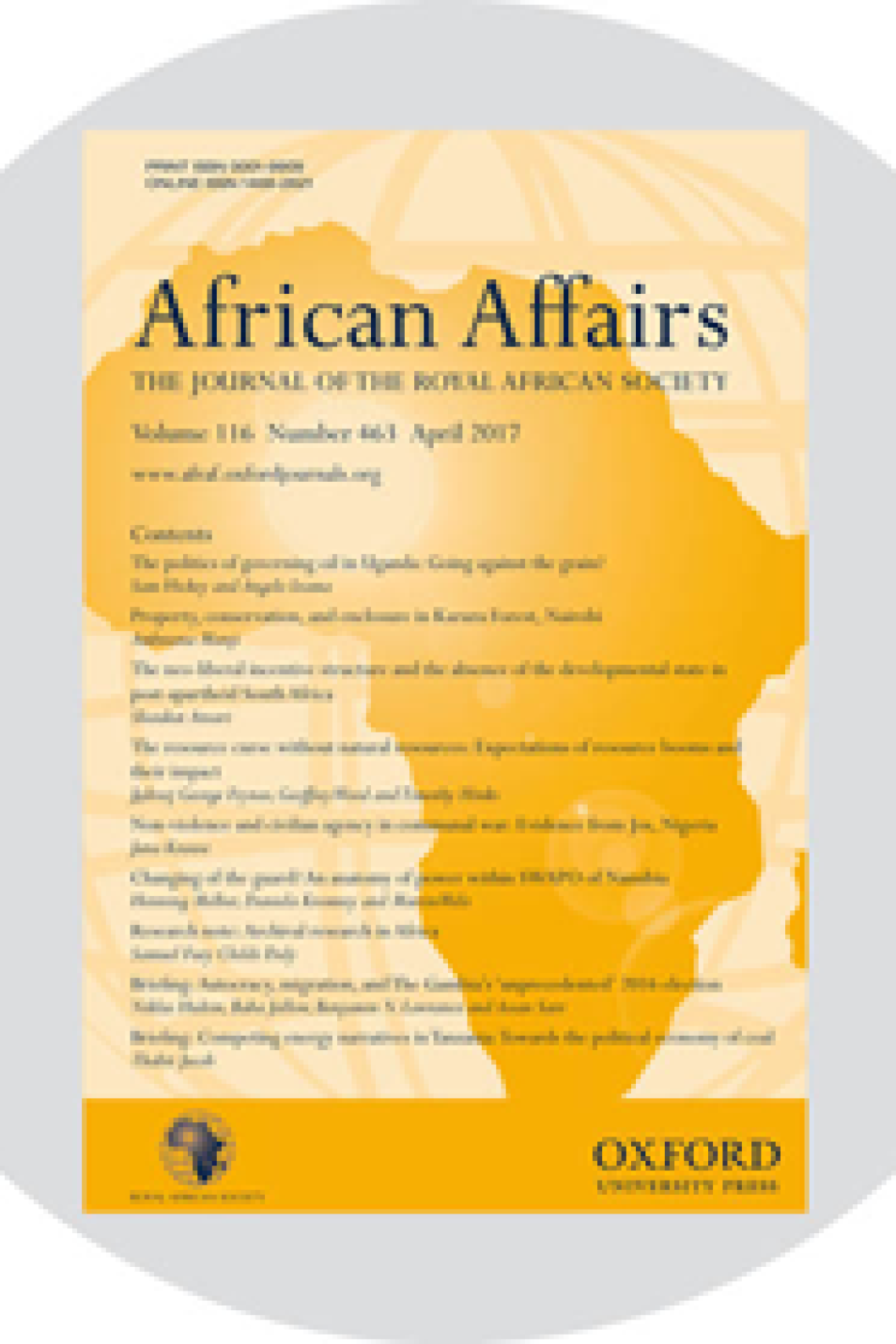New article by Robtel Neajai Pailey on Liberia's 2014/15 Ebola outbreak
A new article by Senior Research Officer Robtel Neajai Pailey explores the role of domestic and diasporic non-government actors in tackling Liberia's 2014/15 Ebola outbreak.
The article demonstrates that by converting ‘private activities and resources’ for public health service delivery, Liberian domestic and diasporic non-government actors effectively broadcasted public authority at meso- and micro-levels previously assumed to be the exclusive domain of government and international institutions.
Moving beyond the structural violence and state-building frameworks, I argue that while Liberia's pursuit of a vertical state-building agenda at the behest of international donors unravelled during Ebola, the public health measures employed by non-government Liberian actors were constituted by horizontal nation-building objectives. This refashioned how we think about public authority in post-war states and beyond.
The article provides a systematic documentation of how and why Liberians ‘inside’ and ‘outside’ the geographic territory of the post-war state used their individual and collective agency to eradicate Ebola, and why their interventions are important for a larger discussion about the trajectory of post-Ebola recovery. Though it is difficult to prove a causal relationship between the interventions of non-government Liberian actors and the gradual decline in Ebola incidence rates, I underscore important correlations between their public health measures and Ebola eradication.
Robtel Neajai Pailey (2017) 'Liberia, Ebola and the pitfalls of state-building: Reimagining domestic and diasporic public authority' in African Affairs, DOI: 10.1093/afraf/adx018

